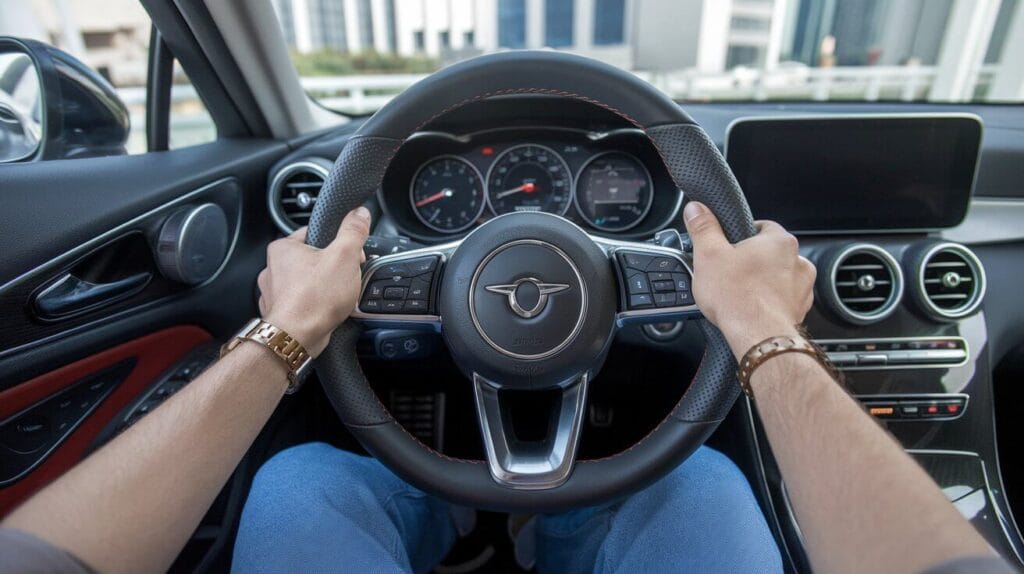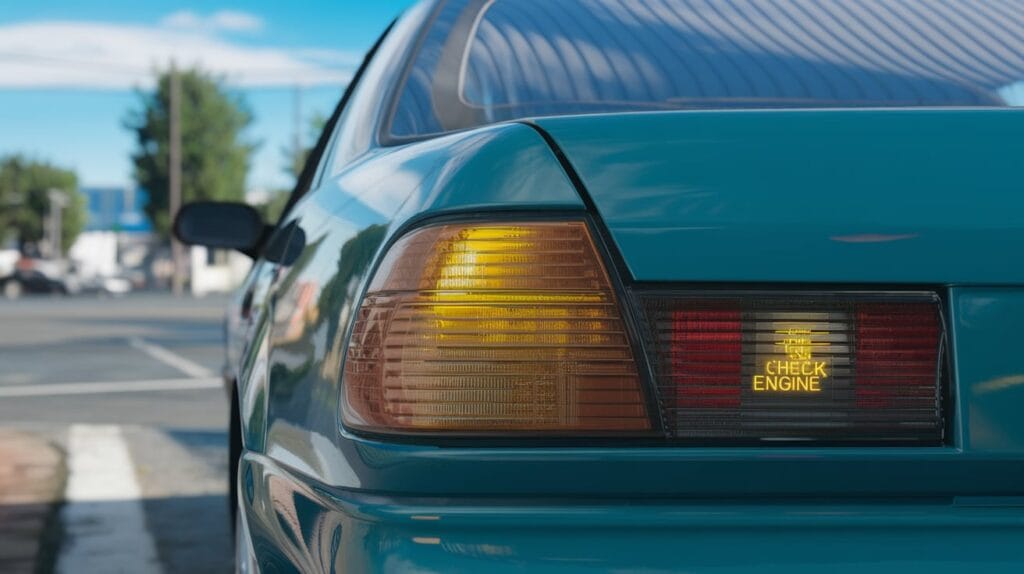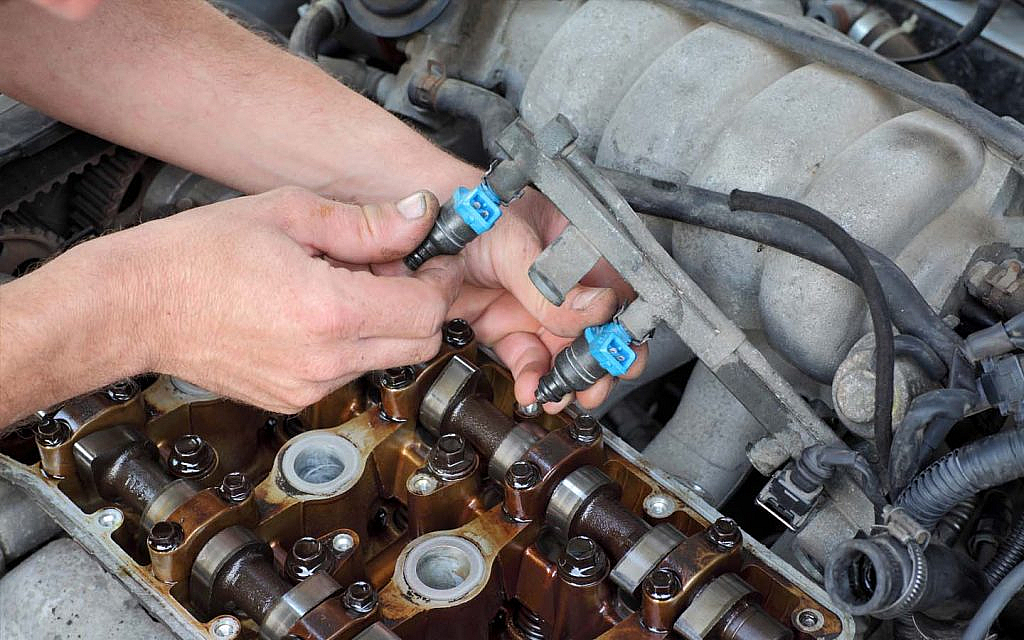Why Car Jerks When Accelerating Needs Immediate Attention? Imagine this: you’re cruising down the road, and suddenly, your car stutters and jolts forward. It’s more than just an uncomfortable experience it’s a red flag that something is seriously wrong. Car jerks when accelerating can catch you off guard, making your ride unpredictable and even unsafe.
Jerking during acceleration typically signals underlying issues like fuel delivery problems, ignition system failures, or transmission trouble. Ignoring these signs can lead to costly repairs, reduced performance, or worse, a breakdown in the middle of traffic.
Don’t let the issue escalate! until your vehicle stops running! Acting early can save you from dangerous situations and hefty repair bills. This blog will help you understand why a car jerks when accelerating, highlight the risks of delaying action and guide you on how to fix it. Stay ahead of the problem and keep your car running smoothly!
Common Reasons Why Car Jerks When Accelerating
Not only is a jerking car annoying, but it’s also an obvious indication that something is wrong with the engine. Finding the source of car jerks when accelerating is essential to preserving the condition of your car and guaranteeing safe driving. Let’s examine the most frequent causes of this problem.
Fuel System Issues
A fuel system issue is one of the main reasons why cars jerk when they accelerate. The constant flow of fuel to the engine might be interrupted by clogged fuel filters, dirty fuel injectors, or a malfunctioning fuel pump. When the engine doesn’t get the right amount of fuel, it can hesitate or jolt, especially during acceleration. These issues often start subtly but can worsen if ignored.
Transmission Problems
It may be difficult for your car to shift gears smoothly if the transmission isn’t operating correctly. Symptoms like slipping gears or a worn-out clutch in manual vehicles are common culprits when a car jerks during acceleration. Transmission problems often escalate quickly, so don’t let them linger.
Ignition System Failures
Incomplete combustion from a malfunctioning ignition system might result in car jerks when accelerating. A rough ride might be caused by worn-out spark plugs, faulty ignition coils, or distributor problems that interfere with ignition. Related issues like signs of worn brake pads or engine misfires often appear together, so catching them early avoids bigger repair bills.
Don’t risk until the jerks turn into a breakdown! Address these common causes promptly to keep your vehicle running smoothly and avoid costly repairs.
Symptoms of Car Jerks When Accelerating
A car rarely jerks without giving you some warning signs. Paying attention to these symptoms can help you catch the problem early and avoid a costly breakdown. Car jerks when accelerating are often accompanied by these telltale indicators:
- Sudden Power Loss: One of the most common signs is a noticeable drop in power when you press the accelerator. This could feel like a hesitation or a lurch forward, signaling issues with the fuel delivery or ignition system.
- Dashboard Warning Lights: When a car jerks during acceleration, warning lights like “Check Engine” or “Transmission” may illuminate. These lights often point to specific problems in the fuel, ignition, or transmission systems.
- Unusual Noises or Vibrations: Listen for knocking, grinding, or sputtering noises when accelerating. Vibrations or a bumpy ride, especially when picking up speed, could indicate underlying issues causing car jerks when accelerating.
Don’t delay! until these symptoms worsen! Early detection is key to avoiding expensive repairs and keeping your car safe and reliable on the road.
Risks of Ignoring Car Jerks When Accelerating
Ignoring car jerks when accelerating jeopardizes not just an uncomfortable drive but also your financial security and safety. What could begin as a small irritation can easily turn into major issues that leave you stuck or require costly repairs?
- Safety Hazards: When a car jerks during acceleration, It may result in an unexpected power outage or make controlling the car more difficult. This is particularly risky when merging into highways or in circumstances with heavy traffic. Accidents or near-misses could result from your car’s moment of hesitation.
- Increased Repair Costs: Neglecting car jerks when accelerating can allow minor issues, such as a worn-out spark plug or a dirty fuel injector, may become serious malfunctions. Unresolved transmission issues, for instance, may require expensive overhauls or perhaps replacement.
- Risk of a Breakdown: An automobile that jerks is an indication that something important is broken. It may cause a total collapse if ignored, leaving you trapped in dangerous or awkward places.
fix it today, otherwise, your vehicle will stop running! Addressing jerking issues promptly can save you from safety risks, costly repairs, and unnecessary stress.
How to Diagnose Car Jerks When Accelerating
When your car jerks when accelerating, The first step in fixing the problem is identifying its underlying cause. A methodical strategy can guarantee your car’s dependability, save time, and avoid expensive repairs. Here’s how to identify the issue:
- Check the Fuel System: Fuel supply problems are a common cause of car jerks when accelerating, so start by checking the fuel system. Check for obstructions in the fuel filter, poor pressure in the fuel pump, and jams in the fuel injectors. To provide a constant supply of gasoline to the engine, these parts must cooperate.
- Inspect the Ignition System: An essential component of combustion is the ignition system. Verify that the ignition coils are operating correctly and look for wear or damage on the spark plugs. Here, malfunctioning parts may interfere with combustion, resulting in a car jerking during acceleration.
- Use an OBD-II Scanner: You may learn a lot about why your car jerks when accelerating by using an OBD-II scanner. Plug it into your vehicle’s diagnostic port to retrieve error codes that can indicate issues with sensors, the fuel system, or the transmission.
- Inspect the Transmission System: Jerking might also be caused by issues with the transmission. In manual autos, look for indications of clutch wear, and in automatics, look for slipping gears or low transmission fluid levels. These problems may interfere with the efficient power transfer that occurs during acceleration.
Don’t wait until minor issues turn into major breakdowns! Diagnosing the cause of car jerks when accelerating promptly. Essential to getting back on the road safely and efficiently.
How to Fix Car Jerks When Accelerating
Fixing car jerks when accelerating necessitates treating the underlying cause found during diagnosis. Taking the appropriate actions will help your automobile run smoothly again, whether the problem is with the transmission, the fuel delivery system, or the ignition system. The following are the best options:
1. Clean or Replace Dirty Fuel Injectors
Engine hesitancy may result from restricted fuel flow caused by clogged fuel injectors. A steady flow of fuel for the engine is ensured by cleaning or replacing the injectors. If you’ve noticed car jerks during acceleration, this is one of the most common fixes.
2. Replace Damaged Spark Plugs or Ignition Coils
Faulty spark plugs or ignition coils can disrupt combustion, causing jerking and stalling. Replacing these components ensures proper ignition and eliminates jerking. Don’t let worn-out spark plugs be the reason why your car jerks when accelerating.
3. Repair or Replace Slipping Clutches or Worn-Out Gears
A sliding clutch in a manual vehicle may cause jerks when shifting gears. Low transmission fluid or worn-out gears could be the cause of automatic transmission problems. Repairing or replacing these components is crucial if your car jerks when accelerating due to transmission issues.
4. Adjust or Replace Faulty Throttle Sensors
For smooth acceleration, the air-fuel mixture is managed by the throttle position sensor (TPS). A jerky ride might be caused by a malfunctioning TPS that sends the engine the wrong signals. The problem can be fixed by adjusting or replacing this sensor.
Why wait? until your vehicle’s jerks worsen into a complete failure? Fixing car jerks when accelerating promptly not only ensures safety but also prevents further damage to critical components
Price Estimation for Fixing Car Jerks When Accelerating in the UAE
Planning your repairs requires knowing how much mending a car jerks when accelerating could cost. The problem, car brand, and repair facility can all affect the cost of repairs in the United Arab Emirates. The anticipated costs for common repairs due to jerking are broken out as follows:
| Repair Type | Specific Service | Estimated Cost (AED) |
| Fuel System Repairs | Fuel Injector Cleaning/Replacement | 300–1,000 |
| Fuel Pump Replacement | 500–2,000 | |
| Fuel Filter Replacement | 200–500 | |
| Ignition System Repairs | Spark Plug Replacement | 100–400 |
| Ignition Coil Replacement | 300–1,200 | |
| Transmission Repairs | Transmission Fluid Change | 300–800 |
| Clutch Replacement (Manual) | 1,500–3,500 | |
| Gearbox Repairs (Automatic) | 2,500–7,000 | |
| Sensor Replacements | Throttle Position Sensor (TPS) | 500–1,500 |
| Mass Airflow (MAF) Sensor | 400–1,200 |
Note: Prices may vary based on the workshop, car model, and brand. Premium service centers for luxury vehicles typically charge higher rates. Always consult a trusted mechanic for an accurate estimate.
Don’t delay repairs! Promptly addressing car jerks when accelerating ensures safety and prevents escalating costs.
Preventing Car Jerks When Accelerating
The greatest method to make sure your car runs smoothly and dependably is to prevent it. By being proactive, you may steer clear of the aggravation and security hazards related to car jerks when accelerating. Here are some essential tips to keep your vehicle in top shape:
1. Schedule Regular Maintenance
Routine maintenance is key to avoiding car jerks during acceleration. To ensure optimal fuel distribution and airflow, change your car’s air and fuel filters as advised by the manufacturer. Maintaining the engine’s efficiency also involves routine oil changes.
2. Replace Spark Plugs and Transmission Fluid on Time
Car jerks when accelerating might be caused by gear slippage or engine misfires caused by worn-out spark plugs or unclean transmission fluid. By replacing these parts on time, you may avoid problems like these and prolong the life of your car.
3. Use High-Quality Fuel
Jerking may result from incorrect combustion or fuel system obstructions caused by low-quality fuel. Avoid impurities that can damage your engine by only filling up at reliable gas stations.
4. Drive Responsibly
Driving aggressively, such as accelerating quickly or braking hard, strains your car needlessly. Adopting smoother driving habits can prevent wear and tear, reducing the chances of car jerks when accelerating.
Don’t risk further damage act now! until your vehicle shows signs of trouble! Following these tips ensures your car remains dependable, smooth, and free from the dreaded car jerks when accelerating.
FAQs About Car Jerks When Accelerating
Can low fuel cause jerking?
Yes, low fuel or a malfunctioning fuel gauge can lead to car jerks when accelerating. Ensure your tank is at least a quarter full to prevent fuel delivery issues.
How much does it cost to fix jerking issues?
The cost depends on the cause. Fixing car jerks when accelerating can range from AED 370 for spark plugs to AED 3,670+ for major transmission repairs.
Is it safe to drive if my car jerks when accelerating?
No, it’s not safe. Car jerks when accelerating could indicate critical problems. Address the issue promptly to avoid further damage or accidents.
Keeping Your Car Smooth and Safe
It might be annoying and even frightening to deal with car jerks when accelerating, but you can take charge of your car’s performance by being aware of the causes, signs, and fixes. From diagnosing fuel system issues to fixing ignition failures or preventing jerks altogether, this blog has covered everything you need to ensure a smooth and safe driving experience.
Ignoring car jerks when accelerating not only puts your safety in danger but also results in expensive repairs and unplanned malfunctions. Don’t wait until your vehicle stops running! Proactive maintenance, timely repairs, and responsible driving habits are the keys to avoiding jerking issues and keeping your car reliable for the long haul.
Remember, early action can save you from bigger headaches down the road. Contact us to diagnose, fix, and prevent car jerks when accelerating, and consult a trusted mechanic for professional assistance when needed. Keep your car running smoothly and enjoy the confidence of a trouble-free ride!




